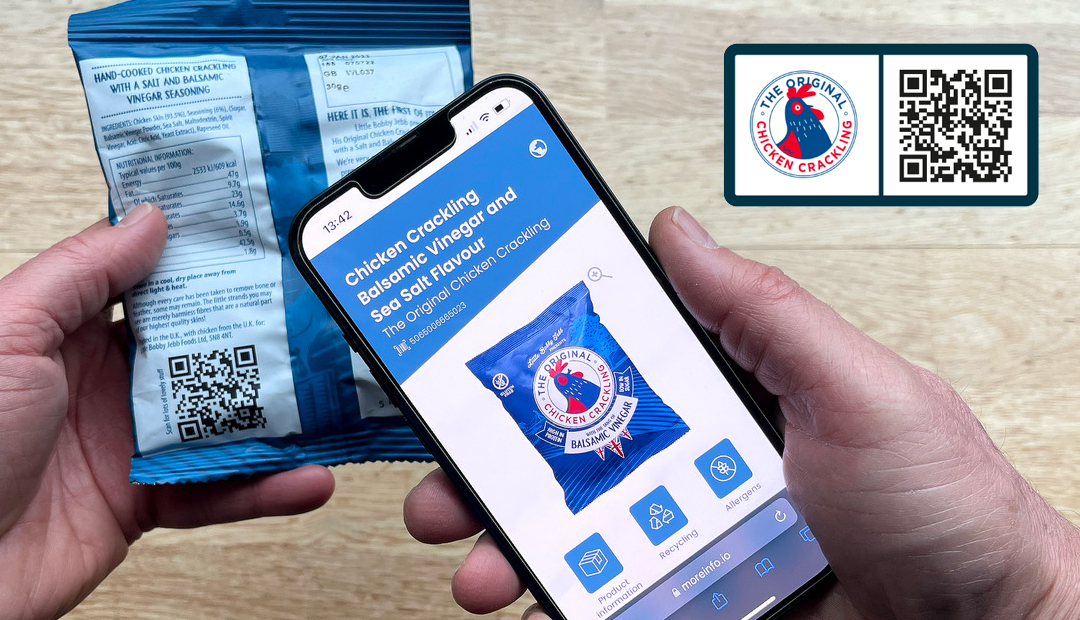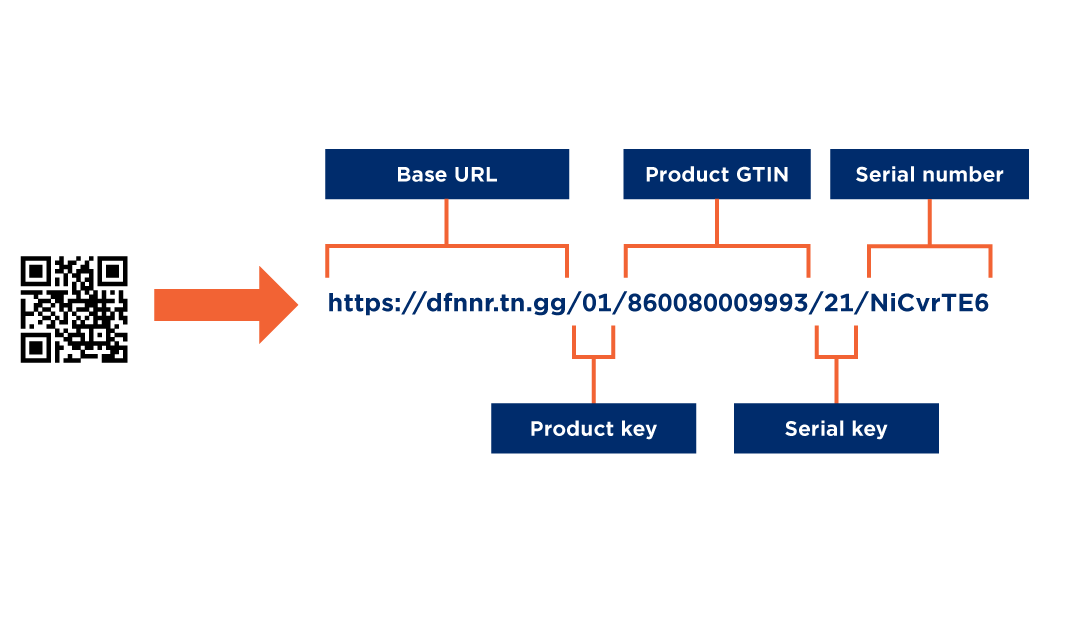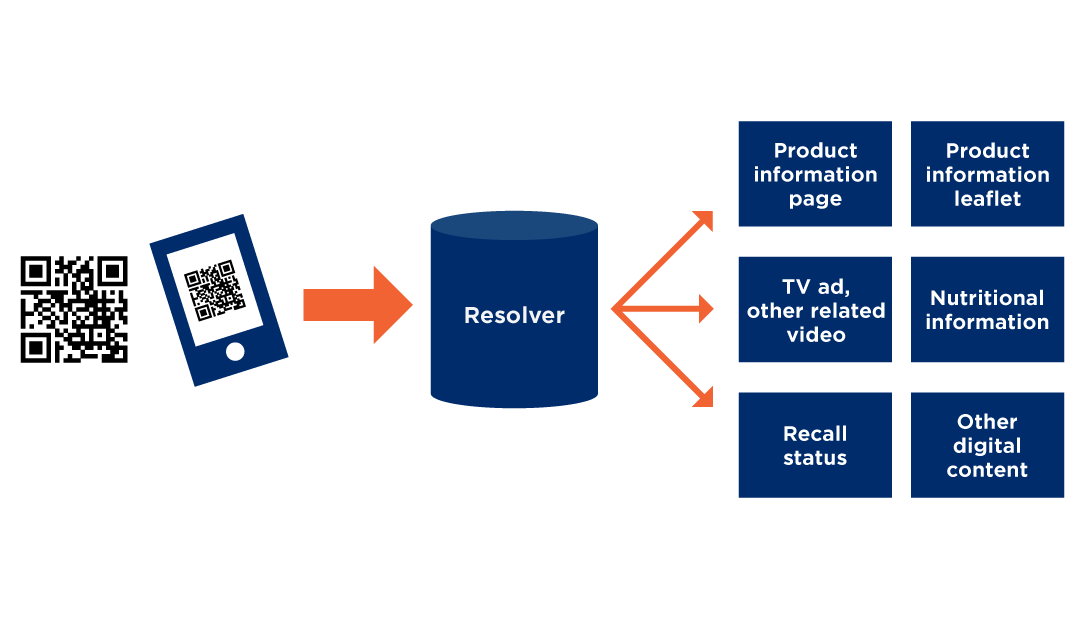To achieve this, Digital Link uses a ‘resolver’. Designed as ‘path finders’ rather than sources of information, resolvers redirect a request from one server to another. To put it simply, they can ‘resolve’ GS1 identifiers to one or more sources of information about an identified item.
For example, a resolver could link the GTIN stored within a URI to show traceability, nutritional or sustainability information about a food or drink product. For hardware, it could link to things like instruction manuals or how-to videos. At the same time, the resolver can link an identified item to information for business partners such as recall status APIs, master data, hazardous handling instructions and more.
Links to those information sources can be updated at any time, perhaps pointing to limited-time promotions or important updates. This means your barcode can work harder, acting as a gateway to unlimited resources to support your B2B and B2C goals.








